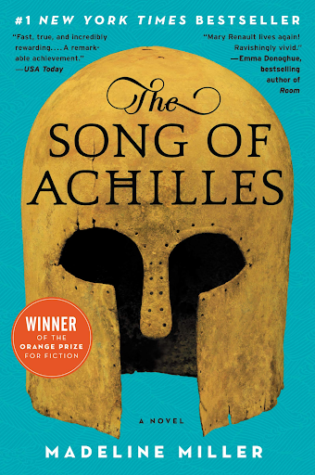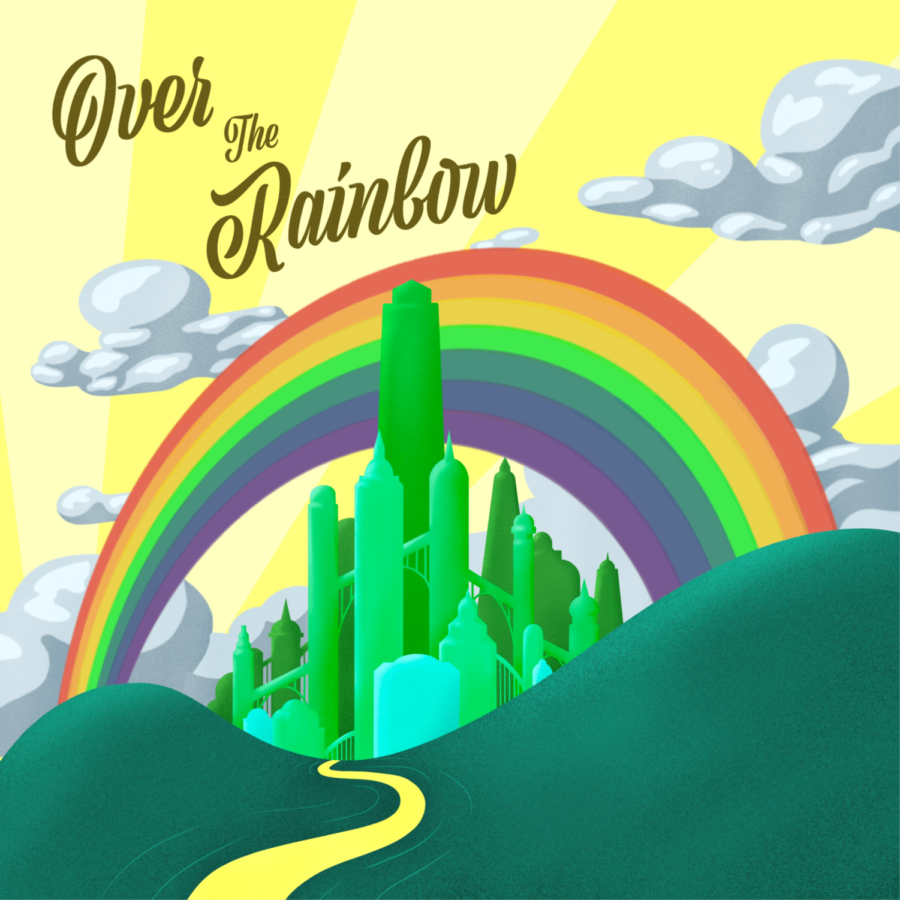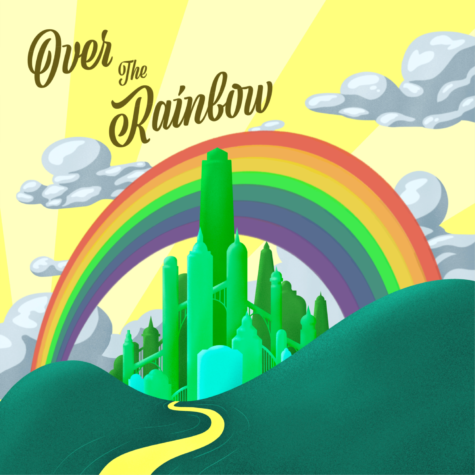The Song of Achilles is Pretty Fruity
As a fan of Greek mythology, picking “The Song of Achilles” (TSOA) to read next was very easy and very rewarding. I actually joined a book club on campus recently, and since this is the first book we’re reading, it made sense to kill two birds with one stone and read it for this blog as well! Bookworms of KSU, thanks for making my job easier! Honestly, I wasn’t aware this was even a book until I joined the book club. When I saw the title, I immediately went to the song “Achilles Come Down” that pops up often on TikTok. Imagine my confusion … Anyway, if you weren’t already aware, “fruity” is a slang term in the LGBTQ+ community that’s essentially another way of saying “gay” or “queer” without the negative connotations attached. At least, that’s my interpretation. So Achilles and Patroclus, right? Fruity as hell, methinks.

“The Song of Achilles” by Madeline Miller is a retelling of the Greek myth of the hero Achilles and his loyal companion, Patroclus. For those familiar with the “Iliad” and/or the story of Achilles, this novel is a refreshing take on the tale. The story is told from Patroclus’ perspective, starting from when he was very young and giving a solid and plausible backstory to the kid before we even meet Achilles (properly). It follows Patroclus and Achilles as they grow from young children to young men and follows their relationship as it grows and develops in a very natural way. The story of Achilles and Patroclus is not one that has a happy ending, which is the case for many Greek myths. Still, even knowing the outcome isn’t a bright one, it’s so easy to get wrapped up in the story of these two young men. From my brief research on the original tale, many events in the story are similar, if not identical to, the original. Of course, Miller takes some liberties with the source material, mainly regarding Patroclus’ backstory and character. Since it’s told through the eyes of Patroclus, we get to see a much more human and relatable version of Achilles than is typically shown in the mythos. Generally, Achilles is conceited, proud and generally seems to not be the most tolerable of people. In TSOA, however, seeing him through Patroclus’ eyes shows us a character who has much more depth than the one-sided hero we know. Although the original myth doesn’t explicitly depict a romantic relationship between Achilles and Patroclus, many people see the subtext and infer the bond to be deeper than just friends. Miller, on the other hand, does clearly depict a romantic relationship. It grows with the boys as they age from young children to young adults, and Miller writes it so well that it feels like an inevitable outcome rather than a forced show of diversity.
Reading this book was both a treat and a nuisance for different reasons. A treat because WLW (women-loving-women) history and culture is linked heavily to Sappho of Ancient Greece, and I’ve always been of the mind that the Ancient Greeks were quite fruity indeed. A nuisance because I have so much going on in my life these days that I rarely found time to dedicate to reading and enjoying the story. Even so, I did enjoy this one, and I’m glad I read it. Historical fiction is another genre that doesn’t see a lot of queer representation, but it’s not like we (LGBT people) just started existing in the last century.
A common argument for homophobia is that being queer, in any way, is a modern trend. And with human history so often whitewashed and cishet-centered, it can really seem that way. But queer people did not just appear in the last 50, 70, 100 years; we’ve been here since the start of humanity. There are so many things I could pull up to use as evidence, but this isn’t an essay about why LGBTQ+ people are as natural as cishet people. This is a blog about books and life. So, let’s just look at how Ancient Greece and queer people coexisted.
The first thing I can think of is when, back in seventh grade history class, I learned that the armies of Ancient Greece often encouraged homosexual relations between their soldiers to boost morale, drive and encourage the men to fight harder. Looking into this now, I’m not quite sure that is accurate, but it certainly isn’t inaccurate. Ancient Greeks didn’t see sexuality as the social identifier it is today, and generally speaking, homosexuality wasn’t a big deal. Some city-states prohibited homosexual relations, and others didn’t care or openly allowed it. Some people have argued that homosexuality was the norm for men and women, and heterosexual sex was just to have children. The biggest reason homosexuality might not be looked upon favorably would have been the way relationships in Ancient Greece were more dictated by the dominant/submissive type of roles partners took on than they were by gender. Basically, being gay was a thing in Ancient Greece with about as much tolerance as there is now. Variable, case-by-case tolerance.
History is as cool and interesting as it is depressing and repetitive, but it still isn’t the focus of this blog. With covering TSOA, I also want to just briefly explore what it means to have a story where the main characters are queer, but that queerness isn’t the focus of the story. Lots of queer media centers around being LGBTQ+ and, often, the struggles of coming out or accepting yourself. That’s not a bad thing — it normalizes the issues of LGBT youth and growing up — but when it becomes so common that it seems to be the only depictions of queerness, it becomes an issue. Queer people do not just have the conflict of coming out and self-acceptance and then nothing else; there are relationships and growth and evolution just like with anyone else. Having stories that depict queer relationships as the same sort of sidenote a hetersexual relationship would have is a key point in diversity and inclusivity. TSOA is a great example of that with how the relationship between Patroclus and Achilles develops as the story progresses. It clearly shows that the two are involved romantically and sexually, but that’s not what the book is about. It’s about a demigod and his companion growing up, Achilles coming into his “hero” status/destiny and the journey of two young men entering a war that neither returns from. That they’re lovers is just an “oh, by the way” note.
Historical fiction is a great way to explore the realities of being LGBTQ+ in a less open, less accepting time. We definitely need plenty more, not just in books, but in movies and shows too. “The Song of Achilles” is a wonderful tale of growing up, destiny and fate and the love between two young men. I, personally, can’t wait to read this again. It reminds me of the love I have for the Broadway show “Hadestown,” and the idea that even if retelling/rereading a story or legend won’t change the ending, the hope that maybe it will this time makes it worth experiencing over and over again anyway.
Your donation will support the student journalists of Kent State University. Your contribution will allow us to purchase equipment and cover our annual website hosting costs.













